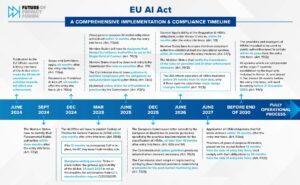Google Responds Promptly to ECJ Ruling on “Right to Be Forgotten”
In a move “welcomed” by privacy advocates, Google today released a web form that allows Europeans to request removal of links to Internet contents that allegedly violate the individuals’ “right to be forgotten.” The form reflects part of Google’s response to the May 13 landmark rulingfrom the European Court of Justice (ECJ) holding that Google can be forced to remove certain search results if they link to Web pages that contain information infringing the privacy of EU citizens.
Google has said it will “assess each individual request and attempt to balance the privacy rights of the individual with the public’s right to know and distribute information.” Reflecting the ECJ ruling, Google indicated that its evaluation will include looking at whether the search results include “outdated information” about the individual, as well as if there is a “public interest” in the information. Google said that public interest could be demonstrated by the information relating to financial scams, professional malpractice, criminal convictions, or public conduct of government officials.
If a request appears valid, it is expected that Google will remove the link from search results pages and post a notice that indicates the request was made, as it does for copyright takedown requests.
Requesting individuals will need to provide proof of their identity as a European citizen and a designation of the country whose law applies to the take-down request.
The form notes that the submission is part of the process that will include consultations with and guidance from data protection authorities. The Article 29 Working Party is scheduled to meet next week to discuss implementation of the ECJ decision uniformly across Europe.
European Commission Vice President Viviane Reding said that Google’s launch is “a good development.”
Relatedly, Google announced it was establishing an international committee to evaluate issues of dealing with requests to “be forgotten,” including Frank La Rue, U.N. Special Rapporteur on the Promotion and Protection of the Right to Freedom of Opinion and Expression, Peggy Valcke, Director, University of Leuven law school, Jose Luis Piñar, former Spanish DPA, Jimmy Wales, Founder of Wikipedia, and Luciano Floridi, Information Ethics Professor at the Oxford Internet Institute.
David Smith, Deputy Commissioner (Head of Data Protection) in the UK Information Commissioner’s Office has said there is space’ to strike a balance between the right to privacy and the public’s right to know. ‘It is important to keep the implications in proportion and recognize that there is no absolute right to have links removed.”
Today’s development reflect Google’s awareness that it needs to comply with the ECJ decision, of course, but that it also continues to feel an obligation to promote free expression and the availability of information.



